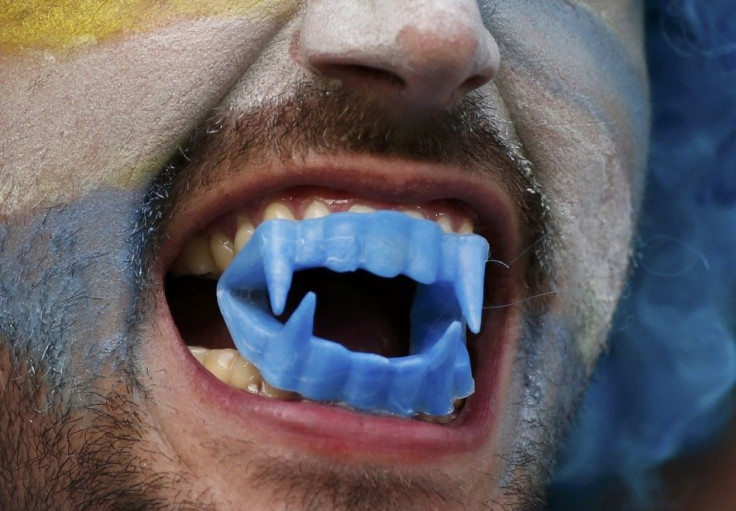Soft Drinks, Fruit Juices Can Cause Immediate Permanent Tooth Decay, Warn Experts

Soft drinks, fruit juice and other sports beverages with high levels of acid can lead to permanent tooth decay, revealed a study conducted by the Craniofacial Biology Research Group at the University of Adelaide in Australia. The findings were published in the Journal of Dentistry.
The research conducted at the University of Adelaide in Australia proved that high level of acidic drinks - soft drinks, boxed juice, sports energy drinks and fruit juice, can have a disastrous effect on the teeth, leading to tooth erosion. "Our research has shown that permanent damage to the tooth enamel will occur within the first 30 seconds of high acidity coming into contact with the teeth. This is an important finding and it suggests that such drinks are best avoided," revealed study corresponding author Dr. Sarbin Ranjitkar (Craniofacial Biology Research Group at the University of Adelaide in Australia) in a university news release. He further added, "If high acidity drinks are consumed, it is not simply a matter of having a child clean their teeth an hour or 30 minutes later and hoping they'll be OK -- the damage is already done."
Ranjitkar said that though there is a balance between acids and protective mechanisms in a healthy mouth, the teeth are damaged when "that balance is shifted in favor of the acids." Stating that tooth decay due to consumption of drinks high in acidity is increasing among children and teenagers, Ranjitkar said, "Often, children and adolescents grind their teeth at night, and they can have undiagnosed regurgitation or reflux, which brings with it acidity from the stomach. Combined with drinks high in acidity, this creates a triple threat to young people's teeth which can cause long-term damage."
Dental erosion, he said is a "growing concern" in developed countries, and comes to notice only when extensive damage has already occurred to the teeth. "Such erosion can lead to a lifetime of compromised dental health that may require complex and extensive rehabilitation, but it is also preventable with minimal intervention," he said in the news release.
How tooth decay happens and how to avoid it?
Tooth decay or tooth erosion happens when the bacteria in the mouth, using sugar from foods and drinks, produce acids that attack the teeth. This process dissolves the outer surface of the tooth enamel, which in turn, exposes the inner layers of the tooth, giving rise to sensitivity and pain. Listed below are a few things one can do to avoid or lessen the impact of tooth decay includes:
- Avoid drinking soft drinks completely and in moderation, if required.
- Use water (fluoridated) after a sugary drink to rinse your mouth. This will help in diluting the sugars.
- Using a straw to drink as this will lessen the impact of sugar and acid in the drink.
- Never drink juice while going to bed as it will coat your teeth with sugar and acid.
- Use toothpaste which has fluoride to brush your teeth.
- Brush your teeth only after an hour of consuming sugary drinks as that will enable your enamel to reharden.






